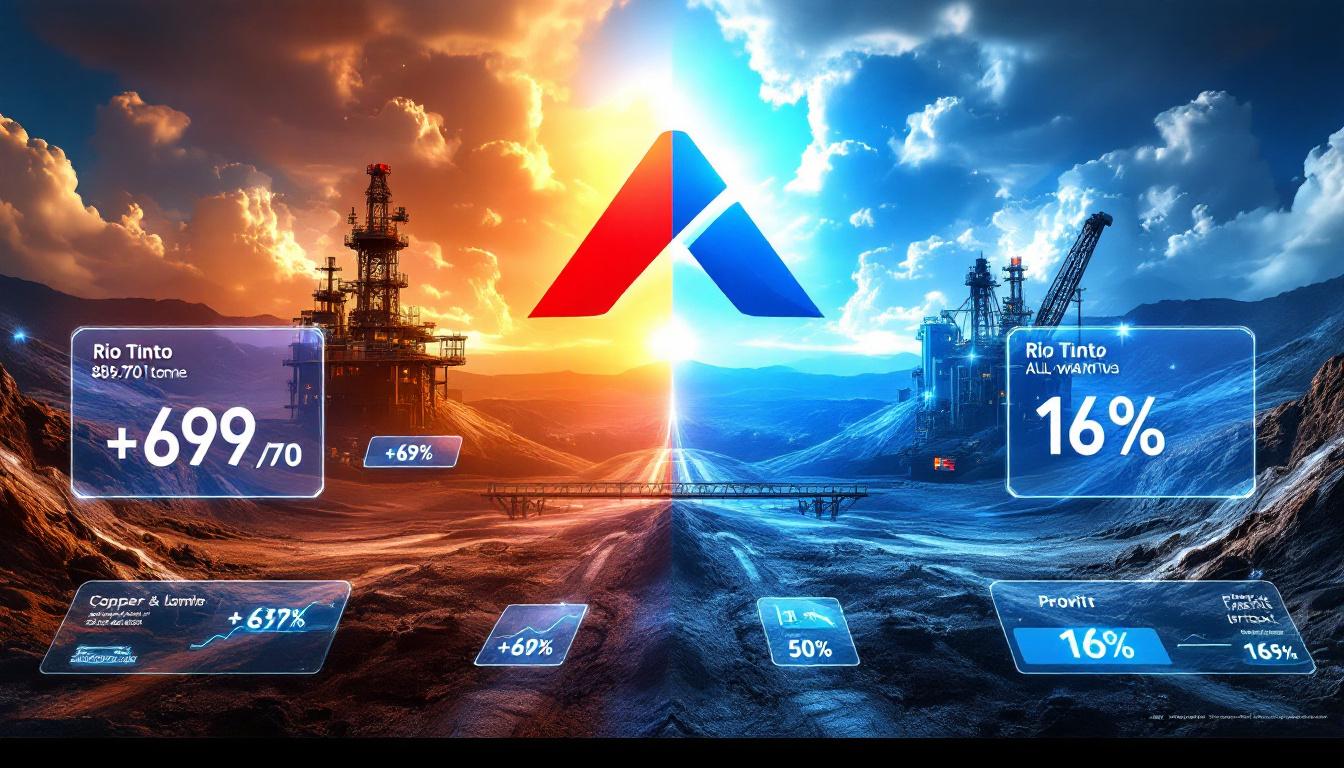What is the Chilean Nuclear Energy Commission's Role in Lithium Extraction?
The Chilean Nuclear Energy Commission (CChEN) plays a pivotal regulatory role in Chile's lithium industry as the primary authority overseeing extraction of this strategic mineral. Under Chilean law, lithium is classified as a strategic resource due to its nuclear applications, particularly in fusion technology and specialized batteries for nuclear facilities. This classification places lithium under CChEN's direct regulatory purview, making the commission's approval essential for any extraction operations in the country.
CChEN's authority stems from Chile's Nuclear Safety Law (Law 18,302), which grants it oversight of materials with nuclear applications. The commission evaluates extraction proposals based on a comprehensive framework that balances national strategic interests, resource sustainability, and environmental protection. This regulatory structure is unique compared to other mining activities in Chile, which typically fall under the Ministry of Mining's jurisdiction.
Legal Framework and Authority
CChEN's regulatory mandate encompasses several critical functions that directly impact lithium operations:
- Extraction quota evaluation – Assessing sustainable production volumes based on geological surveys
- Authorization issuance – Granting permits only after thorough technical and environmental review
- Compliance monitoring – Ensuring operators adhere to approved extraction limits
- Resource conservation oversight – Protecting lithium reserves as strategic national assets
This regulatory framework reflects Chile's recognition of lithium's increasing strategic importance in global technology supply chains, particularly for clean energy applications and advanced battery technologies.
Evaluation Criteria for Approvals
When considering lithium extraction applications, CChEN employs a multi-faceted evaluation process examining:
- Technical feasibility – Assessing the viability and efficiency of proposed extraction methodologies
- Environmental impact – Reviewing potential effects on fragile desert ecosystems, particularly water resources
- Resource conservation – Ensuring extraction rates maintain long-term viability of deposits
- National interest alignment – Evaluating how projects support Chile's strategic economic goals
- Production capacity verification – Confirming operators can meet proposed extraction quotas efficiently
This comprehensive assessment process underscores Chile's commitment to responsible management of its world-class lithium resources while maximizing their economic benefit for the nation.
Why is Codelco's Salar de Atacama Approval Significant?
The recent authorization granted by CChEN to Minera Tarar, a subsidiary of state-owned Codelco, marks a watershed moment for Chile's lithium industry. This approval enables lithium extraction in the globally significant Salar de Atacama basin beginning January 1, 2031, following the conclusion of SQM's current operating contract in 2030. The authorization represents a critical transition in how Chile manages its most valuable lithium brine insights.
Máximo Pacheco, Codelco's Chairman of the Board, emphasized the significance: "The approval of this request by the CChEN is excellent news for Chile. It represents a key step forward in ensuring the operational continuity of the new public-private partnership we are promoting with SQM." This statement highlights both the economic and strategic importance of maintaining production from this world-class resource.
Strategic Importance of the Salar de Atacama Basin
World-Class Lithium Resource
The Salar de Atacama is unquestionably one of the planet's most valuable lithium repositories, containing approximately 27% of the world's known lithium reserves. What makes this basin particularly exceptional are several key characteristics:
- Superior concentration – Lithium brines average 1,500 parts per million, significantly higher than most global deposits
- Exceptional solar evaporation rates – The Atacama's status as one of the world's driest regions accelerates production
- Production efficiency – Current operations extract approximately 140,000 tonnes of lithium carbonate equivalent annually
- Cost advantages – Production costs rank among the lowest globally due to natural resource quality
These factors combine to make the Salar de Atacama the cornerstone of Chile's position as the world's second-largest lithium producer, accounting for approximately 26% of global production.
Current Operations and Transition
The basin's current operations are managed by SQM (Sociedad Química y Minera de Chile) under a contract set to expire in 2030. The CChEN approval establishes a clear framework for the transition to the new Codelco-led structure:
- Transition timeline – Operations will transfer from SQM to the new Codelco partnership on January 1, 2031
- Production continuity planning – Early quota advancement permitted from January 1, 2029, specifically designed to prevent production gaps
- Extraction methodology – Current solar evaporation techniques will continue while more advanced technologies are evaluated
- Environmental considerations – Water usage concerns remain a key focus for future operational planning
This structured transition aims to maintain Chile's critical position in global lithium supply chains while increasing national benefit through greater state participation in the resource's development.
What Does the CChEN Approval Mean for Codelco?
The CChEN authorization represents a transformative opportunity for Codelco, Chile's state-owned copper giant, to diversify into lithium production at scale. This approval provides Codelco's subsidiary, Minera Tarar, with clear parameters for future operations in the Salar de Atacama, establishing both the scope and timeline for what will become one of the company's most significant non-copper ventures.
Details of the Authorization for Minera Tarar
Extraction Parameters and Timeline
The approval grants Minera Tarar substantial extraction rights with carefully defined parameters:
- Initial quota: 2.5 million tonnes of lithium metal equivalent (LME) over 30 years
- Expansion potential: Possible increase to 3.01 million tonnes LME pending updated resource evaluation
- Start date: January 1, 2031, immediately following the conclusion of SQM's current contract
- Early production allowance: Authorization to advance a portion of the extraction quota from January 1, 2029, to ensure production continuity
This structured approach creates a clear roadmap for Codelco's entry into large-scale lithium production while establishing guardrails for resource management. The 30-year timeframe provides the long-term stability necessary for major capital investments in extraction infrastructure.
Operational Considerations
Before Minera Tarar can begin operations, several critical requirements must be addressed:
- Environmental authorization – An Environmental Qualification Resolution must be secured prior to commencing extraction
- Production planning – Strategies must account for the natural delays between brine extraction and producing marketable lithium products
- Infrastructure development – Significant investment in evaporation ponds, processing facilities, and transport infrastructure is required
- Technology selection – Evaluations of traditional evaporation methods versus newer direct lithium extraction technologies
These operational considerations highlight the complexity of the transition process and underscore the need for careful planning to ensure the Salar de Atacama's continued contribution to global lithium supply.
How Will This Impact Chile's Lithium Industry?
The CChEN approval for Codelco's subsidiary represents a pivotal shift in Chile's approach to lithium resource management, moving from primarily private development toward a hybrid public-private model. This evolution aims to increase national benefits while maintaining production efficiency and global competitiveness.
Public-Private Partnership Model
Codelco-SQM Joint Venture Structure
The approval facilitates the anticipated partnership between state-owned Codelco and private-sector SQM, creating a new paradigm for Chile's lithium industry:
- State participation – Represents Chile's strategic shift toward greater governmental involvement in lithium production
- Operational continuity – Ensures uninterrupted production from one of the world's most productive lithium sites
- Knowledge transfer – Creates framework for technology and expertise sharing between public and private sectors
- Risk management – Distributes financial and operational risks between state and private enterprise
As Codelco Chairman Máximo Pacheco noted, this approval is "excellent news for Chile" and "represents a key step forward in ensuring the operational continuity of the new public-private partnership we are promoting with SQM." This statement underscores the national significance of the transition.
Economic Implications
The restructured approach to Salar de Atacama operations carries significant economic implications:
- National revenue enhancement – Greater state participation should increase Chile's share of lithium profits
- Supply chain security – Ensures continued reliable lithium supply for global battery manufacturers
- Investment certainty – Provides clear regulatory framework for future capital commitments
- Employment stability – Maintains and potentially expands job opportunities in the region's mining sector
This balanced approach aims to maximize national benefit while maintaining the operational excellence that has made Chile a global lithium leader.
Global Market Significance
Impact on Lithium Supply
The CChEN approval helps secure Chile's position as a cornerstone of global lithium supply:
- Production certainty – Ensures continued output from a source representing approximately 26% of global production
- Market confidence – Provides battery manufacturers and EV producers with supply chain visibility
- Demand response – Helps meet projected lithium demand growth for energy transition technologies
- Competitive positioning – Maintains Chile's standing against emerging producers in Argentina, Australia, and elsewhere
By establishing a clear framework for post-2030 production, the approval helps stabilize global lithium markets during a period of rapidly growing demand.
Strategic Mineral Politics
The authorization reflects Chile's evolving approach to critical mineral governance:
- Resource sovereignty – Maintains national control over a strategically vital mineral
- Balanced development – Leverages private sector expertise while increasing national benefit
- Energy transition leadership – Positions Chile prominently in clean technology supply chains
- Precedent setting – Establishes model for future lithium development projects in Chile
This balanced approach may serve as a template for other nations seeking to maximize benefits from their critical mineral resources while attracting necessary private investment and expertise.
What Other Lithium Developments Are Occurring in Chile?
While the Salar de Atacama remains Chile's crown jewel of lithium production, the country is actively developing additional lithium resources to diversify production and strengthen its position in global markets. These developments represent a coordinated strategy to expand beyond a single production center.
Expanding Beyond Salar de Atacama
Rio Tinto-Codelco Partnership in Maricunga
One of the most significant developments outside Atacama is the emerging partnership between global mining giant Rio Tinto and Codelco in the Salar de Maricunga:
- Investment scale: Rio Tinto has committed up to $900 million for project development
- Ownership structure: Rio Tinto will acquire a 49.99% stake in the project, with Codelco maintaining majority control
- Strategic importance: Represents Chile's first major lithium diversification beyond Atacama
- Development timeline: Binding agreements have been signed, with production expected to begin in the coming years
This partnership demonstrates Chile's commitment to expanding lithium production while maintaining the public-private balance established in the new Atacama framework. The Maricunga development also reflects global mining companies' growing interest in securing lithium assets to meet surging demand from battery manufacturers.
Regulatory Framework Evolution
Chile's approach to lithium regulation continues to evolve alongside these new developments:
- State participation requirement – New lithium projects typically include significant state involvement
- Environmental standards – Increasingly stringent requirements for water usage and ecosystem protection
- Indigenous consultation – Growing emphasis on engagement with local communities affected by development
- Technology incentives – Encouragement of innovative extraction methods to minimize environmental impacts
This evolving framework aims to balance resource development with environmental protection and social responsibility, creating a sustainable model for long-term lithium production.
What Are the Environmental Considerations?
Lithium extraction in Chile's salt flats presents significant environmental challenges, particularly regarding water usage in one of the world's driest regions. As operations transition to the new Codelco-led structure, environmental management will remain a critical focus area for regulators and operators alike.
Sustainability Challenges in Lithium Extraction
Water Management in Arid Regions
The Salar de Atacama is located in the Atacama Desert, recognized as one of the driest places on Earth, creating unique challenges for lithium extraction:
- Water scarcity – The region receives minimal annual rainfall, making water a precious resource
- Hydrogeological impacts – Brine extraction can affect the delicate balance of underground aquifers
- Ecosystem sensitivity – Local wetlands and lagoons support unique biodiversity adapted to extreme conditions
- Community needs – Water usage must be balanced with agricultural and residential requirements
The CChEN approval process specifically requires an Environmental Qualification Resolution before operations can commence, highlighting the importance of addressing these water management challenges.
Technological Solutions
The lithium industry is actively developing more sustainable extraction approaches to address these environmental concerns:
- Direct lithium extraction (DLE) – New technologies can reduce water usage by up to 90% compared to traditional methods
- Closed-loop systems – Recirculation processes minimize freshwater consumption and environmental discharge
- Renewable energy integration – Solar power implementation to reduce carbon footprint of energy-intensive operations
- Advanced monitoring – Satellite and sensor networks to provide real-time data on environmental impacts
These technological solutions will likely play an increasing role as operations transition to the new Codelco partnership structure, potentially establishing new benchmarks for environmentally responsible lithium production.
How Does This Fit Into Global Lithium Market Trends?
The CChEN approval for Codelco's subsidiary comes at a critical juncture in global lithium markets, as demand surges from electric vehicle manufacturers and energy storage systems. This authorization helps ensure stable supply from one of the world's most important lithium-producing regions during a period of rapid market growth.
Electric Vehicle Revolution and Energy Storage
Supply Chain Security
The continued production from Salar de Atacama addresses urgent supply chain priorities:
- Battery manufacturing – Automotive companies require stable lithium supplies for growing EV production
- Energy storage deployment – Grid-scale batteries and residential systems depend on reliable lithium sources
- Supply diversification – Chile's continued production balances growing output from Australia and emerging lithium industry innovations
- Quality considerations – Atacama's high-grade resource produces battery-quality material more efficiently than many alternatives
With Chile accounting for approximately 26% of global lithium production, the assured continuity of Atacama operations provides crucial stability for downstream manufacturers planning long-term investments.
Price Implications
The structured transition at Salar de Atacama may help moderate price volatility in lithium markets:
- Production visibility – Clear timeline for operational transition reduces market uncertainty
- Supply consistency – Early quota advancement prevents production gaps that could trigger price spikes
- Contract stability – Long-term supply agreements become more viable with clear production outlook
- Investment signals – Regulatory certainty encourages capital allocation to processing capacity expansion
These market stabilizing effects benefit both producers and consumers in the lithium value chain, potentially reducing cost pressures on battery manufacturers and ultimately electric vehicle pricing.
What's Next for the Codelco-SQM Partnership?
Following the CChEN approval, several critical steps remain before the Codelco-SQM partnership can begin lithium extraction operations in the Salar de Atacama. This transition period will involve detailed planning, additional regulatory approvals, and substantial infrastructure development.
Implementation Roadmap
Regulatory Milestones
The partnership must navigate several additional regulatory processes:
- Environmental approvals – Securing the required Environmental Qualification Resolution through Chile's environmental assessment system
- Resource validation – Completing technical studies to verify lithium reserves and optimal extraction rates
- Water rights confirmation – Finalizing permissions for water usage in extraction operations
- Operational permits – Obtaining specific authorizations for processing facilities and transportation
These regulatory steps ensure the partnership meets Chile's environmental standards and resource management requirements before operations commence.
Strategic Positioning
Beyond regulatory compliance, the partnership will focus on strategic positioning:
- Technology selection – Evaluating traditional evaporation methods versus newer geothermal lithium extraction approaches
- Processing infrastructure – Developing facilities to convert lithium chloride to higher-value lithium carbonate and hydroxide
- Market relationships – Establishing supply agreements with battery manufacturers and automotive companies
- Research initiatives – Investing in process improvements to enhance efficiency and reduce environmental impact
These strategic initiatives will shape the partnership's competitive position in global lithium markets and its contribution to Chile's broader economic development.
FAQs About Lithium Extraction in Chile
What makes the Salar de Atacama so valuable for lithium production?
The Salar de Atacama contains some of the world's highest-grade lithium brines with exceptional concentration levels averaging 1,500 parts per million. Combined with the Atacama Desert's unparalleled solar evaporation rates—a result of being one of Earth's driest regions—this allows for highly cost-effective production. These natural advantages give Atacama a significant competitive edge over other global sources, resulting in lower production costs and higher-quality output.
How does CChEN's role differ from other mining regulators in Chile?
Unlike conventional mining regulators that focus primarily on operational and environmental aspects, CChEN has specific authority over lithium due to its classification as a strategic material with nuclear applications. This special designation gives CChEN unique oversight responsibilities, including setting extraction quotas, authorizing specific operations
Want to Capitalise on the Next Major Mineral Discovery?
Stay ahead of the market with Discovery Alert's proprietary Discovery IQ model, which instantly notifies investors of significant ASX mineral discoveries and turns complex data into actionable insights. Explore why historic discoveries can generate substantial returns by visiting the dedicated discoveries page and begin your 30-day free trial today.




